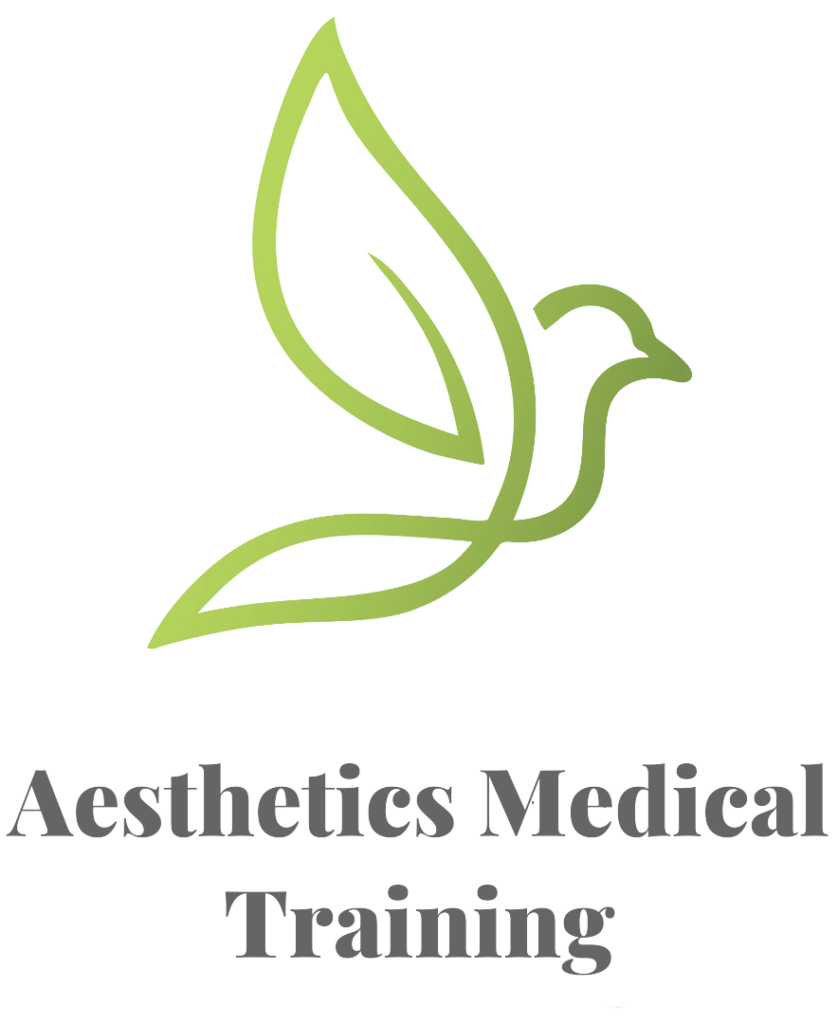Aesthetic nursing, a dynamic and rapidly growing field within the healthcare industry, offers registered nurses a unique blend of clinical skill and artistic finesse. Specialized training and certification are not just beneficial but essential for those looking to excel in this specialized nursing path.
This article provides an in-depth look at the burgeoning world of aesthetic nurse jobs, spotlighting the opportunities and requisite expertise needed to thrive.
Key Insights Into Aesthetic Nursing:
- The Role and Scope of Aesthetic Nurses: Aesthetic nurses, also known as cosmetic nurses or nurse injectors, work primarily in dermatology clinics, plastic surgery practices, and private practices. Their responsibilities often include administering non-surgical treatments like dermal fillers, Botox injections, and laser hair removal.
- Educational Pathways and Certification: Entry into the field requires a valid nursing license, typically an NCLEX-RN, followed by specialized training in aesthetic procedures. Certification through recognized bodies such as the Certified Aesthetic Nurse Specialist (CANS) exam underscores a nurse’s expertise and commitment to the field.
- Career Opportunities and Growth: The demand for skilled aesthetic nurses is climbing, reflecting broader trends in cosmetic surgery and non-surgical aesthetic procedures. Opportunities for aesthetic nurses are expanding beyond traditional settings, including high-end spas and dedicated aesthetic clinics.
- Compensation Trends: According to industry sources, aesthetic nurse salaries are competitive, often exceeding those of general registered nurses due to the specialized skills and qualifications required in cosmetic nursing.
Ready to discover how you can transform your nursing career with aesthetics? Let’s dive in!

Defining Aesthetic Nursing: The Art and Science of Beauty Enhancement
Aesthetic nursing, also known as cosmetic nursing, involves specialized care where nurses focus on treatments that improve cosmetic appearance through non-surgical procedures. According to the International Association for Physicians in Aesthetic Medicine, aesthetic nurses play a crucial role in the administration of treatments such as Botox, dermal fillers, and laser therapy, aimed at enhancing a patient’s aesthetic appeal and boosting self-confidence.
Typical Roles and Responsibilities of Aesthetic Nurses
Aesthetic nurses, or aesthetic injector nurses, are registered nurses who have specialized in cosmetic care, providing a range of services including cosmetic injectables like Botox, dermal fillers, laser hair removal, and chemical peels. They are also responsible for patient consultations, assessing skin health, and planning appropriate treatment protocols in conjunction with licensed physicians.
Nurse.org highlights that aesthetic nurses must also ensure the safety and efficacy of treatments, manage patient records, and provide follow-up care to assess results and plan future treatment sessions.
Settings Where Aesthetic Nurses Work
Aesthetic nurses find employment in diverse settings, including dermatology clinics, cosmetic surgery practices, med spas, plastic surgery clinics, private aesthetic nursing practices, and even in some hospital departments focused on cosmetic procedures. These environments often allow for regular, predictable schedules with minimal night shifts, making it a desirable field for those seeking stability and a balanced work-life.
Industry Insights and Opportunities
The aesthetic medicine industry is rapidly expanding, with the global market expected to reach approximately $332.1 billion by 2030, driven by increasing consumer demand for minimally invasive cosmetic procedures.
This growth translates into abundant opportunities for aesthetic nurses. According to a report by the American Med Spa Association, the demand for skilled nurse injectors has grown significantly, with top professionals in high-demand areas earning upwards of $90,000 annually.
Curious to learn more about salaries in the field of aesthetic nursing? Check out Unveiling the Earnings: What to Expect from an Aesthetic Medicine Salary.
Practical Experience and Career Development
Hands-on experience is vital in aesthetic nursing. New injectable nurses often begin their career by working under experienced mentors in clinics or med spas to gain the necessary skills in various aesthetic procedures. Continuous education and participation in workshops and seminars are also crucial for staying updated with the latest techniques and industry trends.
Aesthetic nursing is a dynamic and rewarding profession that combines clinical expertise with artistic skill, offering nurses a unique pathway to enhance their careers in the healthcare industry. With proper education, certification, and practical experience, aesthetic nurses can achieve significant professional growth and personal satisfaction in this burgeoning field.

Essential Nursing Skills and Qualifications for Aesthetic Nursing
To embark on a career in aesthetic nursing, the foundational requirement is a nurse degree, either an Associate Degree in Nursing (ADN) or a Bachelor of Science in Nursing (BSN). Following this, passing the NCLEX-RN exam to become a registered nurse is essential. Further specialization involves certifications specific to aesthetic practices such as Botox, fillers, and other non-surgical procedures that enhance cosmetic appearance.
Specialized Aesthetic Nurse Certifications
Becoming an aesthetic nurse injector or aesthetic nurse practitioner often requires additional certification beyond the nurse degree. For example, the Certified Aesthetic Nurse Specialist (CANS) certification is highly regarded and involves meeting clinical practice requirements and passing an examination. The American Association of Aesthetic Medicine and Surgery also offers courses and certifications tailored to advancing skills in cosmetic procedures.
Essential Personal and Professional Skills
The role of an aesthetic nurse demands a unique blend of basic nursing skills:
- Detail-oriented: Precision is crucial, especially when performing injections and other skin treatments.
- Artistic vision: Understanding of aesthetics to achieve natural-looking and pleasing results for patients.
- Interpersonal skills: Excellent communication is vital for understanding patient needs and effective patient consultations.
Ready to start? Learn How to Become an Aesthetic Nurse – The Art of Beauty Medicine.
An aesthetic nursing career requires rigorous education and certification, as well as a personal commitment to ongoing education and skill refinement. With the aesthetic industry’s expansion, professionals who continually update their skills and knowledge can expect rewarding opportunities and career growth. This field uniquely combines medical knowledge with artistic skill, offering a fulfilling path for those passionate about both patient care and cosmetic enhancement.
Job Description and Day-to-Day Activities in Aesthetic Nursing
Aesthetic nursing encompasses a variety of roles and responsibilities that blend clinical expertise with an artistic touch. Here’s a closer look at what these specialized nurses do on a daily basis:
Common Procedures Performed by Aesthetic Nurses
- Injectables: Aesthetic nurse injectors commonly administer Botox and dermal fillers to reduce wrinkles and enhance facial contours. According to the American Society of Plastic Surgeons, these injectables are among the top non-surgical cosmetic procedures, with millions performed annually.
- Laser Treatments: These include laser hair removal, skin resurfacing, and tattoo removal, which require a nurse to operate specialized laser equipment safely.
- Skin Care Treatments: Chemical peels, microneedling, and other skincare procedures are also frequently performed, focusing on improving the skin’s appearance and health.
Client Consultation and Care
- Building Trust: Effective communication is crucial. Aesthetic nurses spend significant time consulting with clients, understanding their aesthetic goals, and setting realistic expectations.
- Managing Expectations: Nurses must carefully manage clients’ expectations about the outcomes of aesthetic procedures, ensuring they understand potential results and recovery times.
Safety Protocols and Compliance with Healthcare Regulations
- Adhering to Standards: Aesthetic nurses are required to maintain stringent safety protocols to prevent infections and complications. They must stay updated with the latest healthcare regulations and best practices.
- Documentation: Detailed recording of treatment plans, patient reactions, and follow-up care are mandatory to ensure compliance and high standards of care.

Career Pathways and Advancement in Aesthetic Nursing
Aesthetic nursing offers a unique blend of medical care and aesthetic enhancement, providing a rewarding career path for those interested in making a significant impact on their clients’ confidence and appearance. The field demands a combination of detailed medical knowledge, precise hands-on skills, and a compassionate approach to patient care.
Entry-Level Positions and Career Growth Trajectory
- Starting Out: Entry-level positions for aesthetic nurses often require a Registered Nurse license, obtained after passing the NCLEX-RN exam. Initially, these roles may involve supporting more experienced nurses and learning basic aesthetic procedures such as dermal fillers and laser hair removal.
- Career Progression: With experience, aesthetic nurses can advance to roles such as aesthetic nurse injectors or nurse practitioners specializing in medical aesthetics.
Continuing Education and Specialty Certifications
- Ongoing Education: Aesthetic nurses often pursue additional education in emerging cosmetic techniques and technologies. Courses in injection techniques, filler certifications, and laser treatments are common areas of focus.
- Specialty Certifications: Obtaining certifications from recognized bodies such as the Plastic Surgical Nursing Certification Board (PSNCB) can significantly enhance an aesthetic nurse’s credentials and job prospects.
Opportunities for Leadership Roles Within Aesthetic Medicine
- Management Opportunities: Experienced aesthetic nurses can move into clinic management roles, overseeing teams, managing patient care standards, and ensuring compliance with health regulations.
- Educational Roles: Many seasoned aesthetic nurses contribute to the field by becoming trainers or educators themselves, both in educational institutions and through professional seminars and workshops. This not only enhances their own knowledge but also supports the development of the industry.
- Entrepreneurial Ventures: Some aesthetic nurses advance their careers by opening their own med spas or private practices, where they can cultivate a client base and offer a personalized suite of services.
Whether you’re just starting out after obtaining your RN license or you’re an experienced nurse looking to pivot into a more specialized role, the aesthetic industry provides ample opportunities for growth and advancement.

Training with Aesthetics Medical Training: Where Excellence Meets Accessibility
Aesthetics Medical Training is dedicated to providing top-tier education in aesthetic medicine. Our school’s mission revolves around equipping nurses and other medical professionals with advanced skills in aesthetic procedures through comprehensive, accessible online training.
The goal is to bridge the gap between traditional medical education and the specialized demands of the aesthetic industry, ensuring that graduates are ready to excel in their careers. Our curriculum emphasizes a balanced approach that combines deep theoretical knowledge with practical insights, enabling practitioners to apply their learning directly to patient care with confidence.
Aesthetics Medical Training offers flexible payment options to reduce financial barriers, making education more accessible to a broader range of aspiring professionals. The program is led by a master educator with over 23 years of experience in the aesthetic field, providing students with unmatched expertise and mentorship. Students can enjoy the flexibility of learning at their own pace and in their own space, supported by state-of-the-art online learning technologies.
Upon completion of the courses, students undergo a certification process that tests their knowledge and skills in real-world scenarios. This certification is not just a formal recognition but a gateway to thriving career opportunities in medical aesthetics.
Training with Aesthetics Medical Training is not just about acquiring new skills; it’s about transforming careers and enhancing the quality of patient care in the aesthetic medicine industry. Contact us today and reach your potential!

